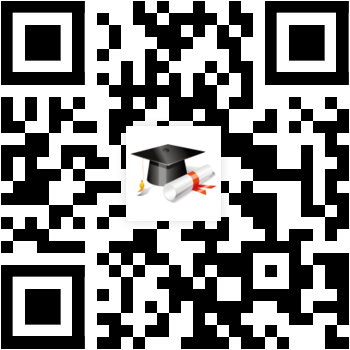同等學力申碩英語日常練習
來源:在職研究生招生信息網 發布時間:2015-04-21 16:23:28
Many people wrongly believe that when people reach old age, their families place them in nursing homes. They are left in the __1__ of strangers for the rest of their lives. Their grown children visit them only occasionally, but more often, they do not have any __2__ visitors. The truth is that this idea is an unfortunate myth __3__ story. In fact, family members provide over 80 percent of the care __4__ elderly people need. Samuel Prestoon, a sociologist, studied how the American family is changing. He reported that by the time the __5__ American couple reaches 40 years of age, they have more parents than children. __6__ , because people today live longer after an illness than people did years __7__ , family members must provide long term care. More psychologists have found that all caregivers share a common characteristic: All caregivers believe that they are the best __8__ for the job. In other words, they all felt that they __9__ do the job better than anyone else. Social workers __10__ caregivers to find out why they took on the responsibility of caring for an elderly relative. Many caregivers believed they had __11__ to help their relative. Some stated that helping others __12__ them feel more useful. Others hoped that by helping __13__ now, they would deserve care when they became old and dependent. Caring for the elderly and being taken care of can be a __14__ satisfying experience for everyone who might be __15__.
1. A. hands B. arms C. bodies D. homes
2. A. constant B. lasting C. regular D. normal
3. A. imaginary B. imaginable C. imaginative D. imagery
4. A. that B. this C. those D. these
5. A. common B. ordinary C. standard D. average
6. A. Further B. However C. Moreover D. Whereas
7. A. before B. ago C. later D. lately
8. A. person B. people C. character D. man
9. A. would B. will C. could D. can
10. A. questioned B. interviewed C. inquired D. interrogate
11. A. admiration B. initiative C. necessity D. obligation
12. A. cause B. enable C. make D. get
13. A. someone B. anyone C. everyone D. anybody
14. A. similarly B. differently C. mutually D. certainly
15. A. involved B. excluded C. included D. considered
答案與解析:
1.A. in the hands of“由……控制或照料”,固定搭配。
2.C. regular“定期的、有規律的”;normal“正常的”;constant“經常的”;lasting“持續的”,這里指定期來看望的人。
3.A. imaginary“不真實的、虛構的”;imaginable“可想象的”;imaginative“富于想象力的”;imagery意為肖像。
4.A. that引導定語從句。
5.D. average指一般、通常的情況;common表示“普通的”,強調大部分;ordinary與special相對立,強調普遍性;standard“標準的”。
6.C. 用moreover“而且”,表示兩句間遞進的關系。如果further加上more,也表示遞進關系。
7.B. ago“以前”,指從現在算起;before是從過去某個時刻算起。
8.B. 這里要用復數,故選people。
9.C. would表示一種意愿,can表示能力。主句是過去時,故選could。
10.B. questioned和inquired表示“詢問、疑問”;interrogate“審問”。故interviewed“面試、訪問”符合句意。
11.D. obligation“責任、義務”;admiration“羨慕”;initiative“首創的,開始的”;necessity“必要性”。本句與上句意思相近,故選obligation。
12.C. make sb do sth.表示“使某人……”,符合句意。
13.A. someone在這里泛指某個人。Anyone、anybody指任何人,everyone指每個人。
14.C. mutually“共同地”;similarly“同樣地、相似的”;differently“不同地”;certainly“當然地”。只有共同地符合句意。
15.A. involved“涉及、牽涉到”;included“包含”;excluded“排除在外、不包括”;considered“考慮到”。
上一篇: 一月MBA考試邏輯學經典試題解析
下一篇: 同等學力申碩教育學日常練習—簡答題





















